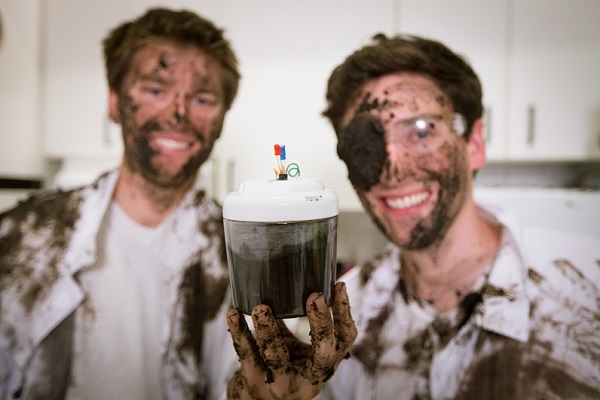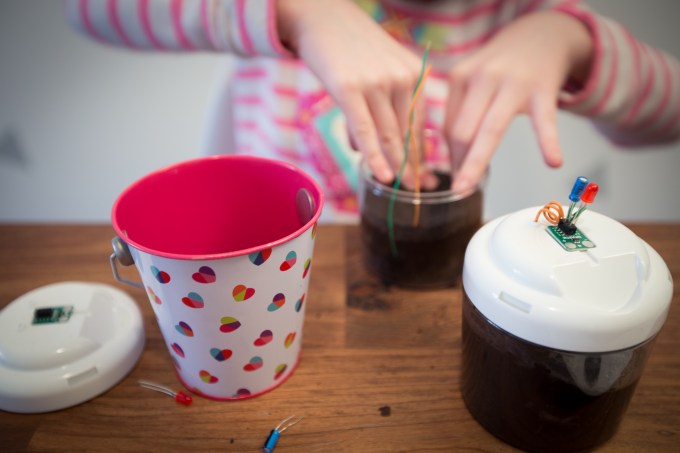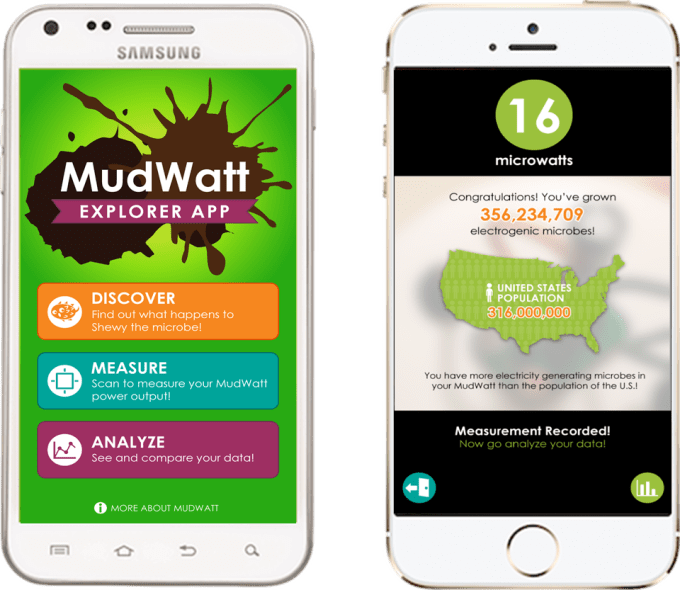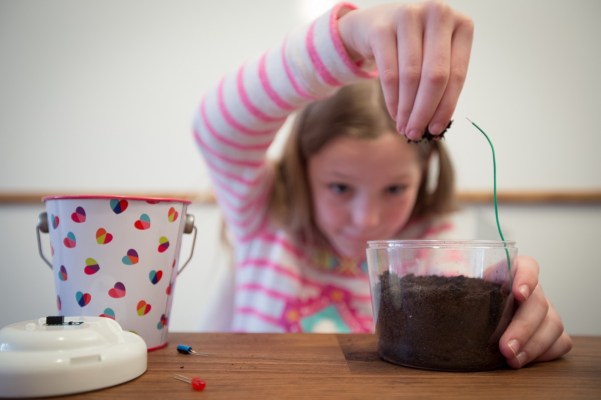A startup that wants to encourage kids to get excited about science and engineering, MudWatt, is now selling an affordable, fun (and, yes, a bit messy), science kit by way of Kickstarter that allows children to make electricity using just mud and electrodes. After the bacteria bloom in the mud, the kit can be used to power simple electronics, including a clock, thermometer and buzzer, which MudWatt also ships with select kits.
The company is further along than others sometimes featured on Kickstarter because it’s actually been in development for several years. And more recently, the team participated in Stanford’s StartX incubator where the co-founders learned more about the toy industry in general.
Explains co-founder Keegan Cooke, the idea for the MudWatt was initially sparked following his work as a research scientist at a small startup called Trophos Energy, which was acquired in 2010. While there, he was developing prototypes of undersea microbial fuel cell systems which used ocean sediment as their power source instead of batteries. During this time, Cooke also went to a number of educational events to show school kids what he was working on, and soon found that children were genuinely interested and engaged with the technology demonstrations.

Along with friend and co-founder Kevin Rand, the two began to build what later became the MudWatt in their spare time over the course of several years while working other jobs and going through grad school. But the more feedback they got from the kit’s early users, the more the two realized there may be the potential to take the product beyond just being a fun side project.
To date, the founders have sold 6,000 of their older-style kits and are now selling at a rate of about 200 kits per month.
“That’s a great milestone given that we never actually tried to sell it. We’ve never done any advertising or anything,” explains Cooke. “But we now see that this is just a drop in the bucket and we could turn this into a legitimate business,” he adds.
On Kickstarter, the team is launching the latest version of the MudWatt kit, which includes several improvements, including compostable packaging and upgraded components. Depending on which kit package you opt for, it will include two graphite electrodes, a board with an LED light, a container of some sort, instructions, and access to the MudWatt Explorer mobile app for iOS and Android.

To use MudWatt, kids add mud from either their own backyard or from a bag bought at a garden store, and then add their own fuel – meaning, generally, something from the fridge. Kids are encouraged to think about what bacteria like to eat, and then pour in whatever it is they think will give the MudWatt a boost – whether that’s Gatorade or ketchup or something else.
In a few days, the LED light will begin to blink, indicating that the container of mud now houses colonies of special bacteria that are generating electricity. By maintaining the colonies in different ways, MudWatt can then be used to run other experiments.
The blinking frequency will increase over time as you build more bacteria, and kids can then connect different things to the kit, like a buzzer, clock, thermometer or their own device, like an LCD calculator, for instance.

The mobile app, meanwhile, is able to detect the blink frequency, which correlates to how much bacteria you’ve grown, and then tells kids how much bacteria they have and how much power they’re generating. The app also unlocks a comic book which follows a hero, an electric microbe, through his muddy world.
Ultimately, Cooke says the larger goal – beyond just getting kids excited about the scientific details itself – is to foster an interest and appreciation for the complexity of the world beneath their feet.
Plus, he says, “we’re seeing a push towards inquiry-based education and open-ended investigation where kids create their own questions and design their own experiments,” explains Cooke. “That’s another core theme we hope kids will learn with our kit.”
Now the founders are thinking of creating more kits like MudWatt focused on these same larger concepts, like a biofuel kit that uses “swamp goo” (algae), for example.
The MudWatt DeepDig Kit is $59, though you can provide your own container and extra gadgets and knock the price down to $29. For schools, there’s also a Classroom Pack with 10 kits available for $350.
As of the time of writing, the company has raised over $26,300 of its $30,000 Kickstarter goal.
